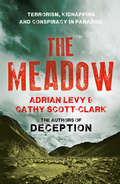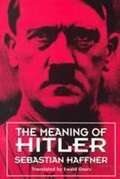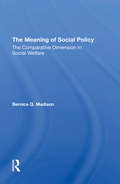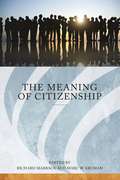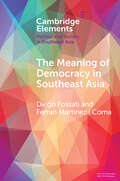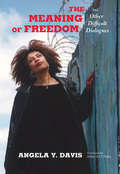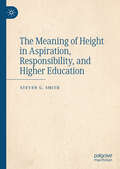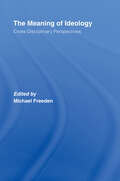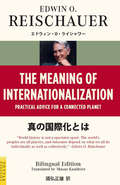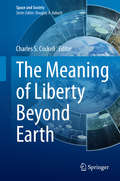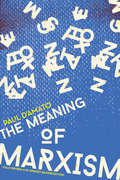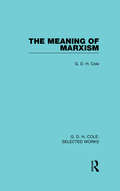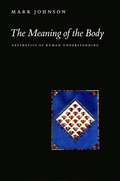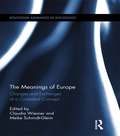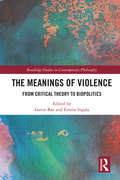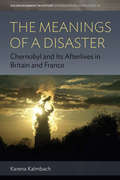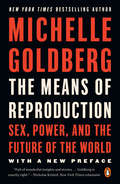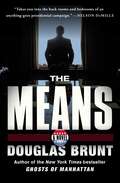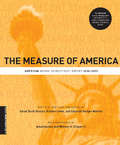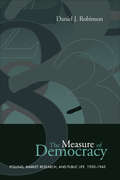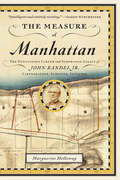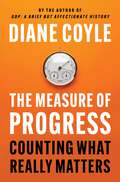- Table View
- List View
The Meadow: Kashmir 1995 - Where The Terror Began
by Cathy Scott-Clark Adrian LevyThe shocking true story of a brutal kidnapping high in the mountains of Kashmir that marked the beginning of modern terrorism. In July 1995, ten backpackers journeyed into the foothills of the Himalayas, trekking to an idyllic campsite known as the Meadow. But their search for tranquillity was savagely interrupted when they were taken hostage by Islamic extremists. Using diaries, letters, classified police reports and interviews with the jihadis themselves, The Meadow traces the escalating tension between kidnappers, victims and police, while examining the high-level conspiracies surrounding the abduction. It tells of the single escape attempt and how – with a brutal beheading – the hostage takers took an irreversible step into the abyss. The shocking true story of the crisis that foreshadowed a new epoch of global terrorism, this is the book that forced Intelligence and government authorities to uncover what really happened in the Meadow.
The Meaning Of Hitler
by Ewald Osers Sebastian HaffnerThis is a remarkable historical and psychological examination of the enigma of Adolf Hitler who he was, how he wielded power, and why he was destined to fail. Beginning with Hitler's early life, Sebastian Haffner probes the historical, political, and emotional forces that molded his character. In examining the inhumanity of a man for whom politics became a substitute for life, he discusses Hitler's bizarre relationships with women, his arrested psychological development, his ideological misconceptions, his growing obsession with racial extermination, and the murderous rages of his distorted mind. Finally, Haffner confronts the most disturbing question of all: Could another Hitler rise to power in modern Germany?
The Meaning Of Social Policy: The Comparative Dimension In Social Welfare
by Bernice Q. MadisonThe purpose of this book is to survey the literature on social welfare policies and planning of different nations in order to explain some of the major problems that are encountered in comparative research and to highlight what has been learned so far.
The Meaning of Citizenship (Series in Citizenship Studies)
by Richard Marback Marc W. KrumanThe essays in this volume are drawn from the tenth anniversary conference of the Center for the Study of Citizenship at Wayne State University, whose theme, "The Meaning of Citizenship," provided an opportunity to reflect on a decade of study in the field. In an academic area where definitions are dynamic and multidisciplinary, editors Richard Marback and Marc W. Kruman have assembled fifteen contributors to show some of the rich nuances of membership in a political community. The Meaning of Citizenship addresses four dimensions of citizenship: the differentiation of citizenship in theory and practice, the proper horizon of citizenship, the character of civic bonds, and the resolution of conflicting civic and personal obligations. Contributors answer these questions from varying disciplinary perspectives, including ethnography, history, and literary analysis. Essays also consider the relevance of these questions in a number of specific regions, from Africa to the Caribbean, Middle East, Europe, and the United States. By identifying the meaning of citizenship in terms of geographic specificity and historical trajectory, the essays in this volume argue as a whole for a cross-disciplinary approach to the issues of inclusion and exclusion that are generated through any assertion of what citizenship means. The four primary concerns taken up by the contributors to this volume are as timely as they are timeless. Scholars of history, political science, sociology, and citizenship studies will appreciate this conversation about the full meaning of citizenship.
The Meaning of Democracy in Southeast Asia: Liberalism, Egalitarianism and Participation (Elements in Politics and Society in Southeast Asia)
by Diego Fossati Ferran Martinez i ComaThis Element contributes to existing research with an analysis of public understandings of democracy based on original surveys fielded in Indonesia, Malaysia, the Philippines, Singapore and Thailand. It conceptualises democracy as consisting of liberal, egalitarian and participatory ideals, and investigates the structure of public understandings of democracy in the five countries. It then proceeds to identify important relationships between conceptions of democracy and other attitudes, such as satisfaction with democracy, support for democracy, trust in institutions, policy preferences and political behaviour. The findings suggest that a comprehensive analysis of understandings of democracy is essential to understand political attitudes and behaviours.
The Meaning of Freedom
by Angela Y. Davis Robin D.G. Kelley"Davis' arguments for justice are formidable. . . . The power of her historical insights and the sweetness of her dream cannot be denied."-The New York TimesWhat is the meaning of freedom? Angela Y. Davis' life and work have been dedicated to examining this fundamental question and to ending all forms of oppression that deny people their political, cultural, and sexual freedom. In this collection of twelve searing, previously unpublished speeches, Davis confronts the interconnected issues of power, race, gender, class, incarceration, conservatism, and the ongoing need for social change in the United States. With her characteristic brilliance, historical insight, and penetrating analysis, Davis addresses examples of institutional injustice and explores the radical notion of freedom as a collective striving for real democracy-not a thing granted by the state, law, proclamation, or policy, but a participatory social process, rooted in difficult dialogues, that demands new ways of thinking and being. "It is not too much," writes Robin D.G. Kelly in the introduction, "to call her one of the world's leading philosophers of freedom." The Meaning of Freedom articulates a bold vision of the society we need to build and the path to get there. This is her only book of speeches and her first full-length book since Are Prisons Obsolete? (2003).Angela Y. Davis is professor emerita at the University of California and author of eight books. She is a much sought after public speaker and an internationally known advocate for social justice.Robin D.G. Kelley is the author of many books and a professor at the University of Southern California.
The Meaning of Height in Aspiration, Responsibility, and Higher Education
by Steven G. SmithThe Meaning of Height takes seriously the traditional figure of “higher life” for intrinsically preferable manners of living. Reworking the Platonic model of ascent to the ideal and descent to responsible engagement with the world, The Meaning of Height lays out concrete possible itineraries of reaching (upward to new acquisitions of personal capacity) and righting (downward from prompts for good order), showing connections between individual and social fulfillment. By focusing on our diversely demanding encounters with the interesting, the important, and the transcendent, the book strikes a counterpoint to the commonly homogenized conception of personal “happiness.” It also counters illiberal views of higher education with a Humboldtian vitality argument for a meaningfully “high” higher education geared to full development of human faculties, a level of education to which the disciplines of philosophy and religious studies make essential contributions. The book concludes by considering the essential role of this sort of higher education in democratic societies.
The Meaning of Ideology: Cross-Disciplinary Perspectives
by Michael FreedenThis is the first collection to bring together leading scholars from diverse disciplines to offer a variety of perspectives on ideology and its analysis, emphasizing the input of different intellectual and scholarly traditions to the meaning of ideology. The articles explore commonalities in the use and understanding of ideology as well as delineating constructive differences in its interpretation, while illuminating the changes that the concept of ideology, as well as the practices it signifies, has undergone in recent years. Contributions are included from the fields of political theory, history, literature, political science, cultural studies, post-Marxism, discourse analysis, language studies, law, and sociology.The Meaning of Ideology advances our understanding of the intricacy and relevance of ideology, and offers the latest theories and insights that currently inform scholarship on the subject. Ideology emerges through the pages of this collection more strongly than ever as a major tool of understanding political language and as a durable and normal phenomenon that is inherent in the many ways we conceive the world around us.This book was previously published as a special issue of The Journal of Political Ideologies and will be of interest to students of political ideologies and political and social theory.
The Meaning of Internationalization
by Edwin O. Reischauer Masao KunihiroIn The Meaning of Internationalization, Edwin O. Reischauer--former American Ambassador to Japan and one of the world's most acclaimed scholars of Japanese life and culture--delivers a heartfelt message to the Japanese people on the need to look beyond their borders at the changing nature of the world. Reischauer stresses the need to adapt in order to survive and thrive in the new reality that our ever-shrinking world is bringing about--a message that resonates even more deeply today and applies not just to Japan, but to every country in the new global economy.
The Meaning of Internationalization
by Edwin O. Reischauer Masao KunihiroIn The Meaning of Internationalization, Edwin O. Reischauer--former American Ambassador to Japan and one of the world's most acclaimed scholars of Japanese life and culture--delivers a heartfelt message to the Japanese people on the need to look beyond their borders at the changing nature of the world. Reischauer stresses the need to adapt in order to survive and thrive in the new reality that our ever-shrinking world is bringing about--a message that resonates even more deeply today and applies not just to Japan, but to every country in the new global economy.
The Meaning of Liberty Beyond Earth
by Charles S. CockellThe purpose of this book is to initiate a new discussion on liberty focusing on the infinite realms of space. The discussion of the nature of liberty and what it means for a human to be free has occupied the minds of thinkers since the Enlightenment. However, without exception, every one of these discussions has focused on the character of liberty on the Earth. The emergence of human space exploration programs in the last 40-50 years raise a fundamental and new question: what will be the future of liberty in space? This book takes the discussion of liberty into the extraterrestrial environment. In this book, new questions will be addressed such as: Can a person be free when the oxygen the individual breathes is the result of a manufacturing process controlled by someone else? Will the interdependence required to survive in the extremities of the extraterrestrial environment destroy individualism? What are the obligations of the individual to the extraterrestrial state? How can we talk of extraterrestrial liberty when everyone is dependent on survival systems?
The Meaning of Marxism
by Paul D'Amato"In [D'Amato's] able hands, Marxist politics come alive and leap before us, pointing a way toward a better world. It's a knockout."--Dave Zirin, author of What's My Name, Fool?: Sports and Resistance in the United StatesIn this lively and accessible introduction to the ideas of Karl Marx, with historical and contemporary examples, D'Amato argues that Marx's ideas of globalization, oppression, and social change are more important than ever.Paul D'Amato is the associate editor of the International Socialist Review. His writing has appeared in CounterPunch, Socialist Worker, and SelvesandOthers.org. He is an activist based in Chicago.
The Meaning of Marxism (Routledge Library Editions)
by G. D. ColeThis book is largely based on What Marx Really Meant which was written by Cole and published in 1934. It is a revaluation of Marx's essential ideas and methods in relation to contemporary social structures and developments and considers the bearing of Marx's theories on the structure of social classes, which altered greatly since he formulated his account of them.
The Meaning of the Body: Aesthetics of Human Understanding
by Mark JohnsonIn The Meaning of the Body, Mark Johnson continues his pioneering work on the exciting connections between cognitive science, language, and meaning first begun in the classic Metaphors We Live By. Johnson uses recent research into infant psychology to show how the body generates meaning even before self-consciousness has fully developed. From there he turns to cognitive neuroscience to further explore the bodily origins of meaning, thought, and language and examines the many dimensions of meaning—including images, qualities, emotions, and metaphors—that are all rooted in the body’s physical encounters with the world. Drawing on the psychology of art and pragmatist philosophy, Johnson argues that all of these aspects of meaning-making are fundamentally aesthetic. He concludes that the arts are the culmination of human attempts to find meaning and that studying the aesthetic dimensions of our experience is crucial to unlocking meaning's bodily sources. Throughout, Johnson puts forth a bold new conception of the mind rooted in the understanding that philosophy will matter to nonphilosophers only if it is built on a visceral connection to the world. “Mark Johnson demonstrates that the aesthetic and emotional aspects of meaning are fundamental—central to conceptual meaning and reason, and that the arts show meaning-making in its fullest realization. If you were raised with the idea that art and emotion were external to ideas and reason, you must read this book. It grounds philosophy in our most visceral experience.”—George Lakoff, author of Moral Politics
The Meanings of Europe: Changes and Exchanges of a Contested Concept (Routledge Advances in Sociology #118)
by Claudia Wiesner Meike Schmidt-GleimWhat is Europe? What are the contents of the concept of Europe? And what defines European identity? Instead of only asking these classical questions, this volume also explores who asks these questions, and who is addressed with such questions. Who answers the questions, from which standpoints and for what reasons? Which philosophical, historical, religious or political traditions influence the answers? This book addresses its task in three parts. The first concentrates on the controversies around the meaning of Europe. The second focuses on the role of the European Union. The third discusses Europe and its relations to different types of otherness, or rather, non-European-ness. The volume produces a complex and plural picture of the concepts, ideas, debates and (ex)changes associated with the concept of Europe, and has a clear significance for today’s debates on European identity, Europeanization, and the EU.
The Meanings of Rights
by Conor Gearty Costas DouzinasDoes the apparent victory, universality and ubiquity of the idea of rights indicate that such rights have transcended all conflicts of interests and moved beyond the presumption that it is the clash of ideas that drives culture? Or has the rhetorical triumph of rights not been replicated in reality? The contributors to this book answer these questions in the context of an increasing wealth gap between the metropolitan elites and the rest, a chasm in income and chances between the rich and the poor, and walls which divide the comfortable middle classes from the 'underclass'. Why do these inequalities persist in our supposed human rights-abiding societies? In seeking to address the foundations, genealogies, meaning and impact of rights, this book captures some of the energy, breadth, power and paradoxes that make deployment of the language of human rights such an essential but changeable part of so many of our contemporary discourses.
The Meanings of Violence: From Critical Theory to Biopolitics (Routledge Studies in Contemporary Philosophy)
by Gavin Rae Emma IngalaViolence has long been noted to be a fundamental aspect of the human condition. Traditionally, however, philosophical discussions have tended to approach it through the lens of warfare and/or limit it to physical forms. This changed in the twentieth century as the nature and meaning of ‘violence’ itself became a conceptual problem. Guided by the contention that Walter Benjamin’s famous 1921 ‘Critique of Violence’ essay inaugurated this turn to an explicit questioning of violence, this collection brings together an international array of scholars to engage with how subsequent thinkers—Agamben, Arendt, Benjamin, Butler, Castoriadis, Derrida, Fanon, Gramsci, Merleau-Ponty, Sartre, and Schmitt—grappled with the meaning and place of violence. The aim is not to reduce these multiple responses to a singular one, but to highlight the heterogeneous ways in which the concept has been inquired into and the manifold meanings of it that have resulted. To this end, each chapter focuses on a different approach or thinker within twentieth and twenty-first century European philosophy, with many of them tackling the issue through the mediation of other topics and disciplines, including biopolitics, epistemology, ethics, culture, law, politics, and psychoanalysis. As such, the volume will be an invaluable resource for those interested in Critical Theory, Cultural Studies, History of Ideas, Philosophy, Politics, Political Theory, Psychology, and Sociology.
The Meanings of a Disaster: Chernobyl and Its Afterlives in Britain and France (Environment in History: International Perspectives #20)
by Karena KalmbachThe disaster at the Chernobyl nuclear power plant was an event of obviously transnational significance—not only in the airborne particulates it deposited across the Northern hemisphere, but in the political and social repercussions it set off well beyond the Soviet bloc. Focusing on the cases of Great Britain and France, this innovative study explores the discourses and narratives that arose in the wake of the incident among both state and nonstate actors. It gives a thorough account of the stereotypes, framings, and “othering” strategies that shaped Western European nations’ responses to the disaster, and of their efforts to come to terms with its long-term consequences up to the present day.
The Means of Reproduction: Sex, Power, and the Future of the World
by Michelle GoldbergA groundbreaking new work on the global battle over reproductive rights by the author of The New York Times bestseller Kingdom Coming Award-winning journalist Michelle Goldberg shows how the emancipation of women has become the key human rights struggle of the twenty-first century in The Means of Reproduction. Deeply reported across four continents, the book explores issues such as abortion, female circumcision, and Asia's missing girls to dramatize the connections between international policymaking and individual lives. Goldberg demonstrates how women's rights are key to addressing both overpopulation and rapid population decline, reducing world poverty, and retarding the spread of AIDS. Sweeping and ambitious, this is a must-read book for feminists, health and policy workers, and anyone concerned about the future of our world. .
The Means: A Novel
by Douglas BruntPart Primary Colors, part House of Cards, The Means takes you deep into high-stakes politics where everyone has something to hide.Tom Pauley is a conservative trial attorney in Durham, NC, who is tapped by GOP leaders to campaign for the Governor's mansion. His bold style makes him a favorite for a run at the White House. Mitchell Mason is the president-elect of the United States, pushed into politics by a father determined to create a political dynasty. Mason manages the White House with a personal touch that makes both friends and enemies. Samantha Davis is a child actor-turned-lawyer-turned-journalist, working her way up from the bottom in a competitive industry. She is determined and brilliant, and her dogged pursuit of a decade-old story could trigger a scandal that would upend the political landscape. New York Times bestselling author Douglas Brunt's "savage" (Publishers Weekly) prose creates an incisive portrait of ambition, power, and what it takes to win in the ruthless world of politics today.-old story could trigger a scandal that would explode the political minefield. Part Primary Colors, part House of Cards, The Means explores the characters and motivations behind high-stakes politics where everyone has something to hide, and they will do whatever it takes to achieve their ends.
The Measure of America: American Human Development Report, 2008-2009 (A Columbia / SSRC Book)
by Burd-Sharps SarahThe Measure of Americais the first-ever human development report for a wealthy, developed nation. It introduces the American Human Development Index, which provides a single measure of well-being for all Americans, disaggregated by state and congressional district, as well as by gender, race, and ethnicity. The Index rankings of the 50 states and 436 congressional districts reveal huge disparities in the health, education, and living standards of different groups. Clear, precise, objective, and authoritative, this report will become the basis for all serious discussions concerning the realization of a fair, just, and globally competitive American society.
The Measure of America: American Human Development Report, 2008-2009 (A Columbia / SSRC Book)
by Kristen Lewis Sarah Burd-Sharps Eduardo MartinsThe Measure of America is the first-ever human development report for a wealthy, developed nation. It introduces the American Human Development Index, which provides a single measure of well-being for all Americans, disaggregated by state and congressional district, as well as by gender, race, and ethnicity. The Index rankings of the 50 states and 436 congressional districts reveal huge disparities in the health, education, and living standards of different groups. Clear, precise, objective, and authoritative, this report will become the basis for all serious discussions concerning the realization of a fair, just, and globally competitive American society.
The Measure of Democracy: Polling, Market Research, and Public Life, 1930-1945
by Daniel RobinsonPoliticians, government officials, and public relations officers lean heavily on polling when fashioning public policy. Proponents say this is for the best, arguing that surveys bring the views of citizens closer to civic officials. Critics decry polling's promotion of sycophantic politicians who pander to the whims of public sentiment, or, conversely, the use of surveys by special interest groups to thwart the majority will. Similar claims and criticisms were made during the early days of polling. When George Gallup began polling Americans in 1935, he heralded it as a bold step in popular democracy. The views of ordinary citizens could now be heard alongside those of organized interest groups. When brought to Canada in 1941, the Gallup Poll promised similar democratic rejuvenation. In actual practice, traditionally disadvantaged constituencies such as women, the poor, French Canadians, and African Americans were often heavily underrepresented in Gallup surveys. Preoccupied with election forecasting, Gallup pollsters undercounted social groups thought less likely or unable to vote, leading to a considerable gap between the polling results of the sampled polity and the opinions of the general public. Examining the origins and early years of public opinion polling in Canada, Robinson situates polling within the larger context of its forerunners – market research surveys and American opinion polling – and charts its growth until its first uses by political parties.
The Measure of Manhattan: The Tumultuous Career and Surprising Legacy of John Randel, Jr., Cartographer, Surveyor, Inventor
by Marguerite Holloway"Randel is endlessly fascinating, and Holloway's biography tells his life with great skill."--Steve Weinberg, USA Today John Randel Jr. (1787-1865) was an eccentric and flamboyant surveyor. Renowned for his inventiveness as well as for his bombast and irascibility, Randel was central to Manhattan's development but died in financial ruin. Telling Randel's engrossing and dramatic life story for the first time, this eye-opening biography introduces an unheralded pioneer of American engineering and mapmaking. Charged with "gridding" what was then an undeveloped, hilly island, Randel recorded the contours of Manhattan down to the rocks on its shores. He was obsessed with accuracy and steeped in the values of the Enlightenment, in which math and science promised dominion over nature. The result was a series of maps, astonishing in their detail and precision, which undergird our knowledge about the island today. During his varied career Randel created surveying devices, designed an early elevated subway, and proposed a controversial alternative route for the Erie Canal--winning him admirers and enemies. The Measure of Manhattan is more than just the life of an unrecognized engineer. It is about the ways in which surveying and cartography changed the ground beneath our feet. Bringing Randel's story into the present, Holloway travels with contemporary surveyors and scientists trying to envision Manhattan as a wild island once again. Illustrated with dozens of historical images and antique maps, The Measure of Manhattan is an absorbing story of a fascinating man that captures the era when Manhattan--indeed, the entire country--still seemed new, the moment before canals and railroads helped draw a grid across the American landscape.
The Measure of Progress: Counting What Really Matters
by Diane CoyleWhy do we use eighty-year-old metrics to understand today&’s economy?The ways that statisticians and governments measure the economy were developed in the 1940s, when the urgent economic problems were entirely different from those of today. In The Measure of Progress, Diane Coyle argues that the framework underpinning today&’s economic statistics is so outdated that it functions as a distorting lens, or even a set of blinkers. When policymakers rely on such an antiquated conceptual tool, how can they measure, understand, and respond with any precision to what is happening in today&’s digital economy? Coyle makes the case for a new framework, one that takes into consideration current economic realities.Coyle explains why economic statistics matter. They are essential for guiding better economic policies; they involve questions of freedom, justice, life, and death. Governments use statistics that affect people&’s lives in ways large and small. The metrics for economic growth were developed when a lack of physical rather than natural capital was the binding constraint on growth, intangible value was less important, and the pressing economic policy challenge was managing demand rather than supply. Today&’s challenges are different. Growth in living standards in rich economies has slowed, despite remarkable innovation, particularly in digital technologies. As a result, politics is contentious and democracy strained.Coyle argues that to understand the current economy, we need different data collected in a different framework of categories and definitions, and she offers some suggestions about what this would entail. Only with a new approach to measurement will we be able to achieve the right kind of growth for the benefit of all.
